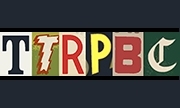Welcome to the Tabletop Roleplayers' Book Club!
Howdy, Stranger!
It looks like you're new here. If you want to get involved, click one of these buttons!
Quick Links
Categories
In this Discussion
 Help offset server costs by donating. This is totally optional. Any overages will go to library fines or new books.
Help offset server costs by donating. This is totally optional. Any overages will go to library fines or new books.

Comments
Saw this quote posted on RPG.net - a reference to this book?
“Why does the third of the three brothers, who shares his food with the old woman in the wood, go on to become king of the country? Why does James Bond manage to disarm the nuclear bomb a few seconds before it goes off rather than, as it were, a few seconds afterwards? Because a universe where that did not happen would be a dark and hostile place. Let there be goblin hordes, let there be terrible environmental threats, let there be giant mutated slugs if you really must, but let there also be hope. It may be a grim, thin hope, an Arthurian sword at sunset, but let us know that we do not live in vain.”
— Terry Pratchett, “Let There Be Dragons” (A Slip of the Keyboard)
Gotcha...one thread for each question.
General comments on the book- it's so long ago I'd read it that I'd forgotten and just retained a few impressions. And this time it started off really slowly for me, feeling a bit of a struggle, wondering what I'd done with the choice of book, but it got better and better for me as the book progressed. From about 40% of the way through I couldn't put it down.
The questions and threads are now here!
There isn't another question that discusses this, but honestly this seems like the best place to catch the people who didn't finish the book. Although the writing was generally lovely, sometime even lush, there was a real distance set between the events and the reader, I found. I'm not sure if it was Artos perspective as a first-person narrator looking back on things, there was very little immediacy to the story. There wasn't much variation in pace, for example. Battle scenes were not hectic or fast, but felt like remote and hazy memories of battles. Also, for much of the book it didn't really feel like anything was at stake. The battles weren't dangerous. The social interactions were moreso - Artos conundrum about marrying Guenhumara, and his befriending of the Little Dark People being counter to what his companions felt about them were intesting. Medraud's presencce spiced things up a bit, but almost as soon as he arrived he disapeared again. As a result I really felt the book lacked tension of any kind, which is why it struggled (imo) to pull people into the story.
I think you are spot on, Chris! There was no pull, no compulsion, because there was no tension.
For me, there was tension in the book, or maybe a certain amount of dread at bad things which were certain to happen, but there was no tension in the battle scenes. I quite liked that they were "remote and hazy memories of battle" though.
The narration did feel distant from events. That put me off at the start of the book (and to be honest, the initial business talking about horses I simply found quite boring), but the more I read, the more I engaged.
I'm beginning to suspect I'm the only one in the club who liked the book. Oh well...
I finished it, but had longish gaps of not reading it and then thinking with some alarm that I had better get back to it (especially when I had forgotten it was for two months not one ). In the end I wanted to see how the various threads were drawn together and in particular how disposing of the Sword was handled (given that the whole book was all overtly non-magical), but I can't say that I was ever very carried away by it. I don't really know why... it was competently written, consistent, historically quite convincing, and I would say that I enjoyed it on the whole... but it just didn't excite me or captivate me. Perhaps the answer is as I mentioned elsewhere, that I prefer an Arthurian treatment which keeps at least some of the magic and mystery, and this was too solidly historical to grab me.
). In the end I wanted to see how the various threads were drawn together and in particular how disposing of the Sword was handled (given that the whole book was all overtly non-magical), but I can't say that I was ever very carried away by it. I don't really know why... it was competently written, consistent, historically quite convincing, and I would say that I enjoyed it on the whole... but it just didn't excite me or captivate me. Perhaps the answer is as I mentioned elsewhere, that I prefer an Arthurian treatment which keeps at least some of the magic and mystery, and this was too solidly historical to grab me.